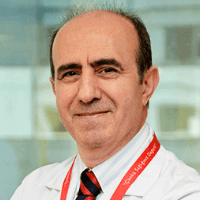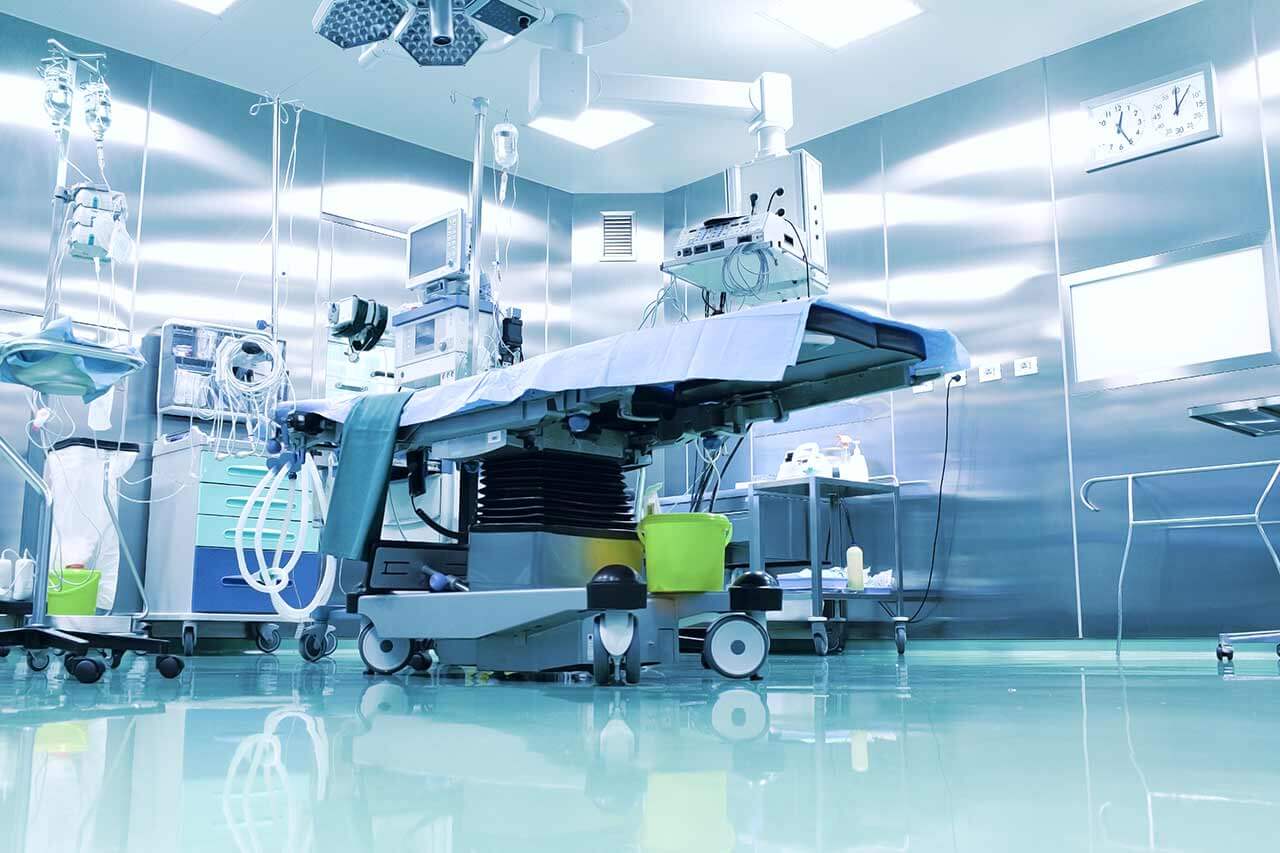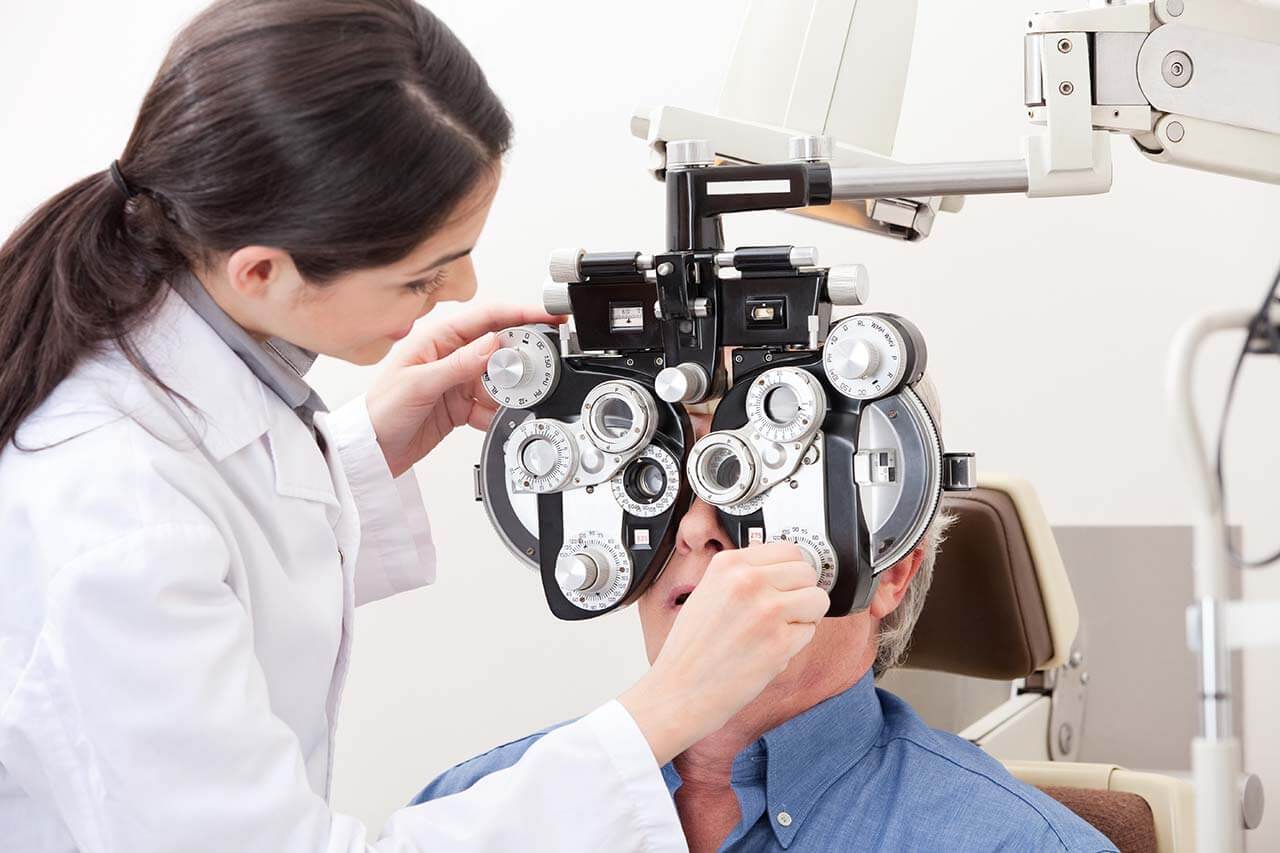
The program includes:
- Initial presentation in the clinic
- clinical history taking
- review of medical records
- physical examination
- laboratory tests:
- complete blood count
- general urine analysis
- biochemical analysis of blood
- inflammation of indicators (CRP, ESR)
- indicators of blood coagulation
- gynecological examination
- ultrasound scan: pelvis, abdomen
- preoperative care
- da Vinci treatment
- symptomatic treatment
- control examinations
- the cost of essential medicines and materials
- nursing services
- full hospital accommodation
- explanation of future recommendations
How program is carried out
During the first visit, the physician will conduct a clinical examination and go through the results of the available diagnostic tests. After that, you will undergo the necessary additional examination, such as the assessment of liver and kidney function, ultrasound scan of the abdominal and pelvic organs. Based on the results of the examination, the physician will choose the surgical technique and the type of anesthesia.
Surgery with the da Vinci robot starts with general anesthesia. After anesthesia, the surgeon makes small incisions through which the manipulators of the da Vinci robot and a video camera are inserted into the pelvic cavity. With the help of manipulators, the surgeon fixes the prolapsed pelvic organs in the physiological position, and the video camera continuously transmits a three-dimensional image of the operating field in 12-fold magnification to the monitor.
To fix the pelvic organs, the surgeon can use own muscles and ligaments of the vagina, uterus, rectum and other organs, or mesh prostheses. The use of mesh implants improves the functional outcomes of the operation and reduces the risk of recurrence.
After the completion of the operation, you will be transferred back to the ward, under the supervision of the attending physician and nursing staff. Due to the minimal invasiveness of the operation and the short duration of general anesthesia, you will not need to stay in the intensive care unit for a long time.
Finally, the attending physician will evaluate the results of control examinations, schedule the date of discharge from the hospital and give you detailed recommendations for further follow-up and treatment.
Required documents
- Medical records
- Pelvic ultrasoud (if available)
- Pelvic MRI/CT scan (if available)
Service
You may also book:
 BookingHealth Price from:
BookingHealth Price from:
About the department
The Department of Gynecology, Gynecologic Oncology, Urogynecology and Obstetrics at the Memorial Sisli Hospital Istanbul provides high-quality diagnostics and treatment of the full spectrum of diseases of the female genital organs. The area of competence of the department's specialists also includes the integrated management of pregnancy, including high-risk pregnancies and multiple pregnancies, delivery and postnatal care for the mother and baby. The treatment of the female genital oncopathologies is of particular interest to the department's gynecologists. Cancer treatment is based on an interdisciplinary approach – all the necessary experts from related fields are involved in the therapeutic process, including oncologists, radiation therapists, chemotherapists, surgeons and others. In addition, the department deals with the treatment of diseases of the pelvic organs. It provides effective therapy for all types of urinary incontinence and pelvic organ prolapse. The clinical practice involves the use of only modern and most effective treatments, which make it possible to achieve excellent results both in simple benign pathologies and in especially complex forms of cancer. Much attention is paid to the preservation of reproductive function in young women. The department is headed by Prof. Dr. med. Ahmet Gocmen.
The team of the department's gynecologists has all the necessary medical and technical resources to solve gynecological problems of any degree of complexity. The specialists conduct routine screenings to assess the state of the organs of the reproductive system, advise women on menstrual irregularities, menopause, hormonal disorders of gynecological genesis, etc. The department often treats women with urogynecological problems, such as urinary incontinence. The specialists of the department have the necessary professional skills and extensive experience for the successful treatment of all forms of urinary incontinence, including stress, urge, nocturnal, mixed and other forms. In most cases, it is enough for patients to have an intensive drug therapy, complemented by the regular performance of a special set of exercises to strengthen the pelvic floor muscles. If conservative treatment does not give any positive dynamics, TVT and TOT sling procedures are considered. The interventions are performed using minimally invasive techniques, which significantly shortens the postoperative recovery period.
The focus of the department's gynecological team is on patients with oncological pathologies. The department successfully treats uterine cancer, cervical cancer, ovarian cancer, fallopian tube cancer, vulvar and vaginal cancer. As a rule, one of the most important procedures in the treatment protocol is a surgical resection of the tumor. In most cases, operations to treat cancer of the female genital organs are performed using minimally invasive and robot-assisted techniques, which makes it possible to shorten the hospitalization period for patients, provide them with a speedy recovery, as well as better aesthetic results due to the absence of noticeable scars. Nevertheless, surgery alone is often not enough for a complete cure from oncology. Depending on the specific clinical situation and indications, additional chemotherapy, radiation therapy, hormonal therapy, targeted therapy and other therapeutic measures are possible. The department's gynecologists achieve excellent treatment results due to the competent combination of surgical intervention with the above methods. Whenever possible, the specialists try to preserve fertility in women who want to become mothers in the future. Due attention is also paid to the psychological state of patients – the conversations with the department's competent psychologists help them overcome the emotional shock caused by the diagnosis of cancer, as well as set their mind on the successful treatment outcome.
The direction of obstetrics is represented by an excellent team of highly qualified doctors who take care of the safe course of pregnancy and childbirth. The state-of-art ultrasound equipment allows the doctors to effectively monitor the development of the fetus in the womb. The childbirth takes place in cozy and modern delivery rooms, equipped not only with an obstetric bed, but also with various aids for a successful delivery. To relieve pain during childbirth, the doctors use acupuncture, aromatherapy, massage, relaxation baths, peridural anesthesia and other methods. If necessary, a caesarean section can be performed. After giving birth, the mother and newborn are provided with competent care, the mother receives advice on the nutrition and care of the baby.
The department's rage of medical services includes:
- Diagnostics and treatment of benign gynecologic diseases
- Endometriosis
- Uterine fibroids
- Polycystic ovary syndrome
- Infectious diseases of the female genital organs
- Menstrual irregularities
- Menopause and its manifestations
- Precancerous neoplasms in the vulva and vagina (for example, genital warts)
- Diagnostics and treatment of urogynecologic diseases
- Urinary incontinence
- Stress urinary incontinence
- Urge urinary incontinence
- Mixed urinary incontinence
- Nocturnal urinary incontinence
- Persistent urinary incontinence
- Neurogenic urinary incontinence
- Pelvic organ prolapse
- Urinary incontinence
- Diagnostics and treatment of malignant gynecologic diseases
- Uterine cancer
- Cervical cancer
- Ovarian cancer
- Fallopian tube cancer
- Vulvar cancer
- Vaginal cancer
- Obstetric services
- Integrated management of pregnancy, including high-risk pregnancies, multiple pregnancies
- Delivery (natural childbirth and caesarean section)
- Postpartum care for mother and newborn
- Other medical services
Curriculum vitae
Professional Career
- Since 2017 Head of the Department of Gynecology, Gynecologic Oncology, Urogynecology and Obstetrics at the Memorial Sisli Hospital Istanbul, Istanbul, Turkey.
- 2016 - 2017 Work in the Department of Gynecology and Obstetrics, Emsey Hastanesi Hospital, Istanbul, Turkey.
- 2012 - 2016 Head of the Department of Gynecology and Obstetrics, Hospital at Istanbul Medeniyet University, Istanbul, Turkey.
- 2005 - 2016 Head of the Department of Gynecology and Obstetrics, Ümraniye Training and Research Hospital, Istanbul, Turkey.
- 2002 - 2005 Head of the Department of Gynecology and Obstetrics, Hospital at Gaziantep University, Gaziantep, Turkey.
- 1999 - 2002 Chief Physician, Kayseri Maternity Hospital, Kayseri, Turkey.
- 1995 - 1999 Lecturer, Course on Endoscopic Surgery and Infertility, Faculty of Medicine, Dicle University, Diyarbakir, Turkey.
- 1993 - 1994 Lecturer, Perinatology Course, Faculty of Medicine, Dicle University, Diyarbakir, Turkey.
- 1988 - 1989 Compulsory Clinical Practice at Osmancık Çorum Dispensary, Corum, Turkey.
Higher Education and Postgraduate Training
- 1989 - 1993 Highly specialized training in Gynecology and Obstetrics, Faculty of Medicine, Dicle University, Diyarbakir, Turkey.
- 1982 - 1988 Study of Human Medicine, Faculty of Medicine, Gazi University, Istanbul, Turkey.
Memberships in Professional Societies
- Turkish Society of Gynecology and Obstetrics.
- Turkish Society of Gynecologic Oncology.
- Turkish Society for Minimally Invasive Surgery in Gynecological Oncology (Founding Member and Board Member).
- Turkish Society for Minimally Invasive Surgery in Gynecology.
- Turkish Society of Robot-Assisted Surgery in Gynecology (Founding Member).
- Society of European Robotic Gynaecological Surgery.
- European Society of Gynaecological Oncology.
- Turkish Society for Reproductive Medicine and Infertility (former Board Member).
- Turkish Society of Perinatology.
Photo of the doctor: (c) Memorial Şişli Hospital
About hospital
The Memorial Sisli Hospital Istanbul is the largest and leading medical complex in Turkey, which meets the highest standards of medical care when providing the advanced diagnostics and treatment using the very latest methods. The hospital is part of the Memorial Health Group – it was the first project of this provider of medical services. The medical center opened its doors to the first patient in 2000. The hospital became the first in Turkey and the twenty-first in the world holder of the JCI (Joint Commission International) accreditation certificate. Only the best and the most reputable hospitals in the world medical arena can receive this certificate.
The hospital has 292 beds for patient hospitalization. The surgical treatment is performed in 13 high-tech operating rooms. The medical complex also has 4 intensive care units, 3 state-of-the-art laboratories, specialized centers, including the In Vitro Fertilization Center, the Transplant Center, the Center for Genetic Diseases, the Bone Marrow Transplant Center, the Robotic Surgery Center, the Cancer Center and others.
The hospital has achieved particular success and international recognition in such medical fields as ophthalmology, reproductive medicine, plastic surgery, cardiology and cardiac surgery, transplantology, genetics. The highly qualified doctors who have undergone professional training in the best hospitals in Turkey, Europe and the USA take care of the patients' health. The specialists have a tremendous clinical experience and thousands of saved lives.
It is worth noting that the medical complex has earned a strong reputation not only in Turkey, but also at the international level – the hospital holds consultations, provides diagnostics and treatment for patients from 92 countries.
Image: (c) depositphotos
Accommodation in hospital
Patients rooms
The patients of the Memorial Sisli Hospital Istanbul live in comfortable single or double rooms with all the necessary amenities. The patient rooms are made in a modern design. The standard patient room includes an automatically adjustable bed, a bedside table, a wardrobe for storing personal belongings, a telephone and a TV. Each patient room also has an ensuite bathroom with shower and toilet. The patient rooms have Wi-Fi.
Meals and Menus
The patient and the accompanying person are offered tasty and balanced three meals a day. If for some reason you do not eat all foods, you will be offered an individual menu. Please inform the medical staff about your food preferences prior to treatment.
Further details
Standard rooms include:
Accompanying person
During the inpatient program, the accompanying person can live with the patient in a patient room or a hotel of his choice. Our managers will help you choose the most suitable option.
Hotel
During an outpatient program, the patient can stay at the hotel of his choice. If desired, the patient can stay in a five-star hotel on the territory of the hospital. Our managers will help you choose the most suitable option.




